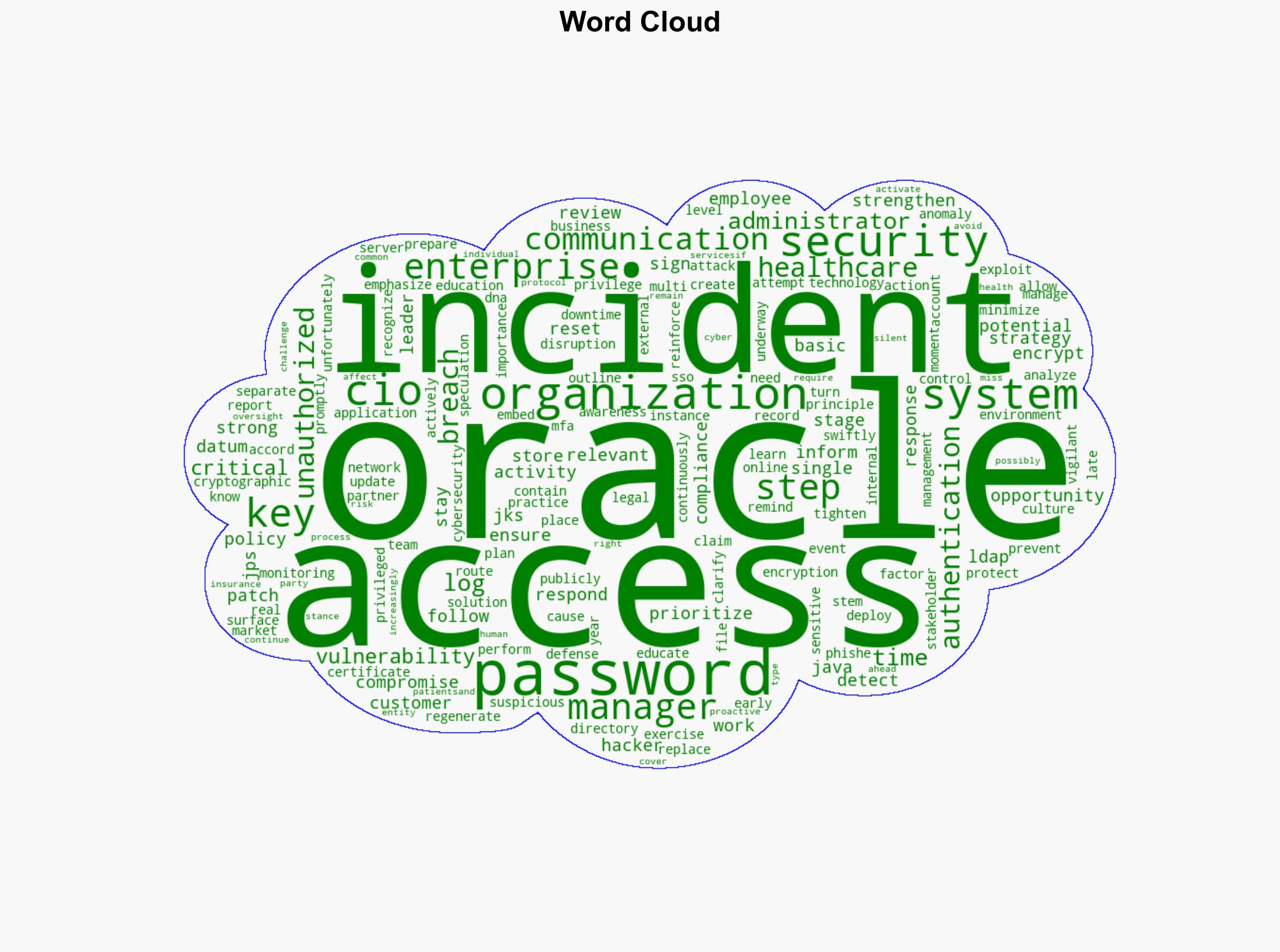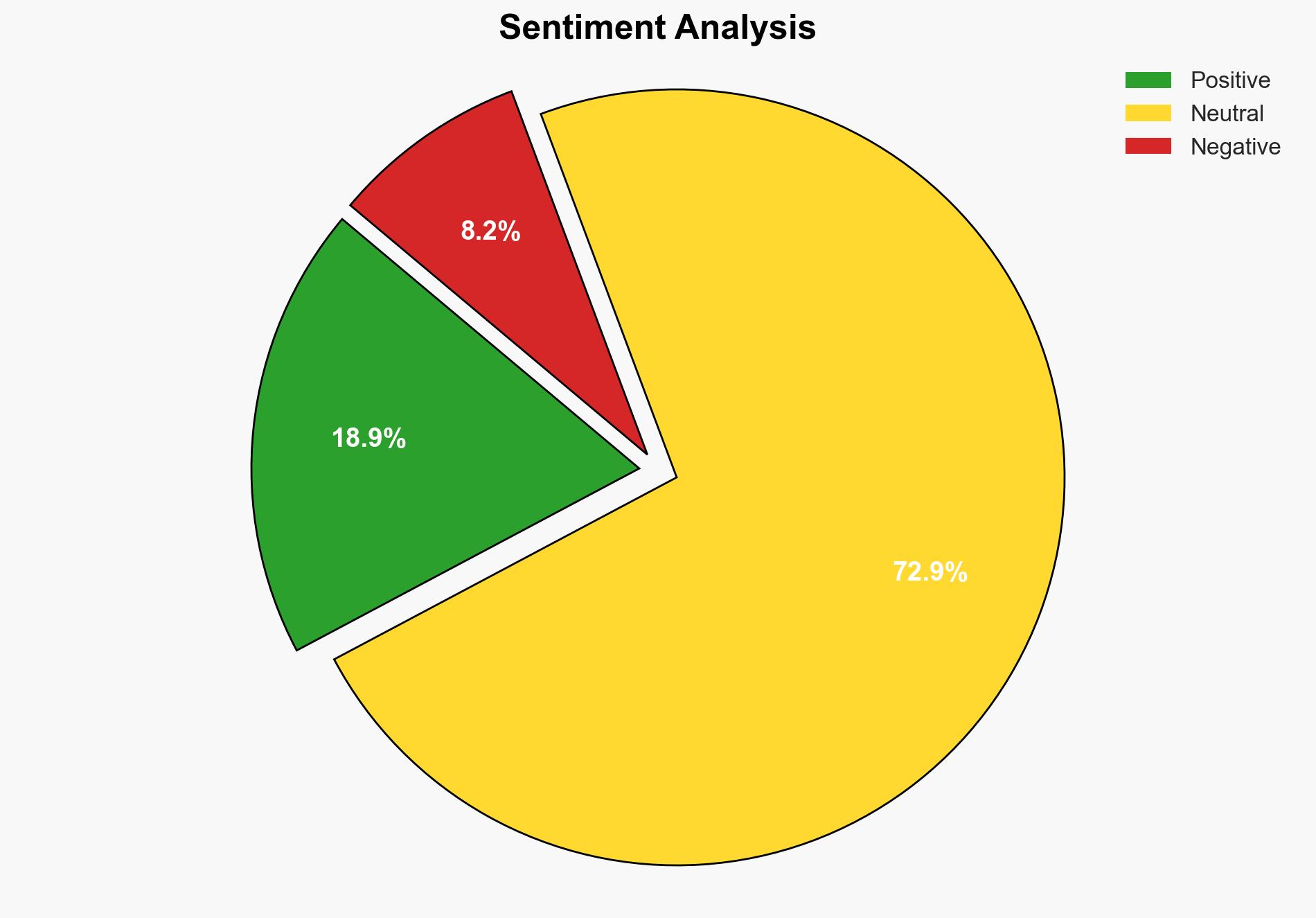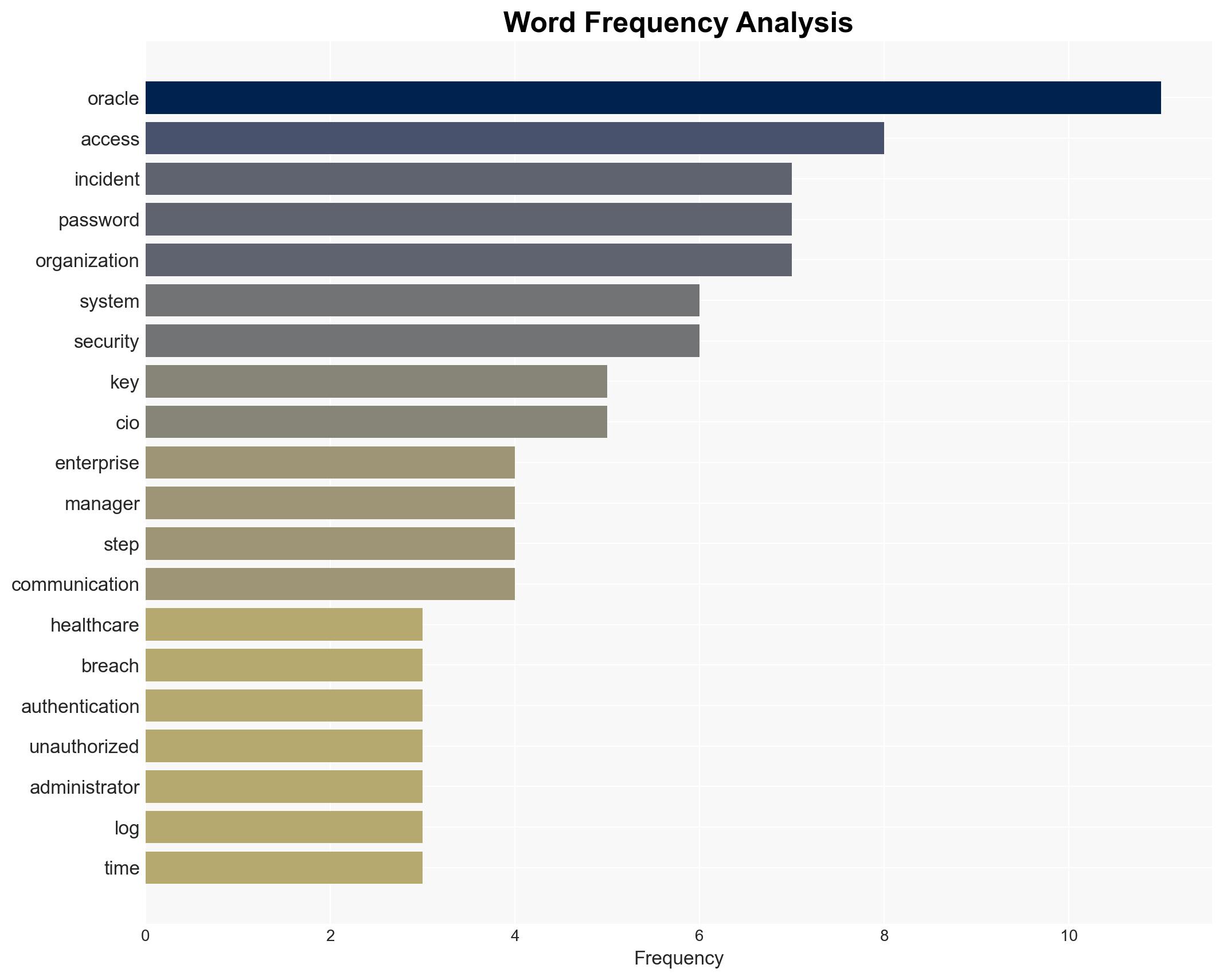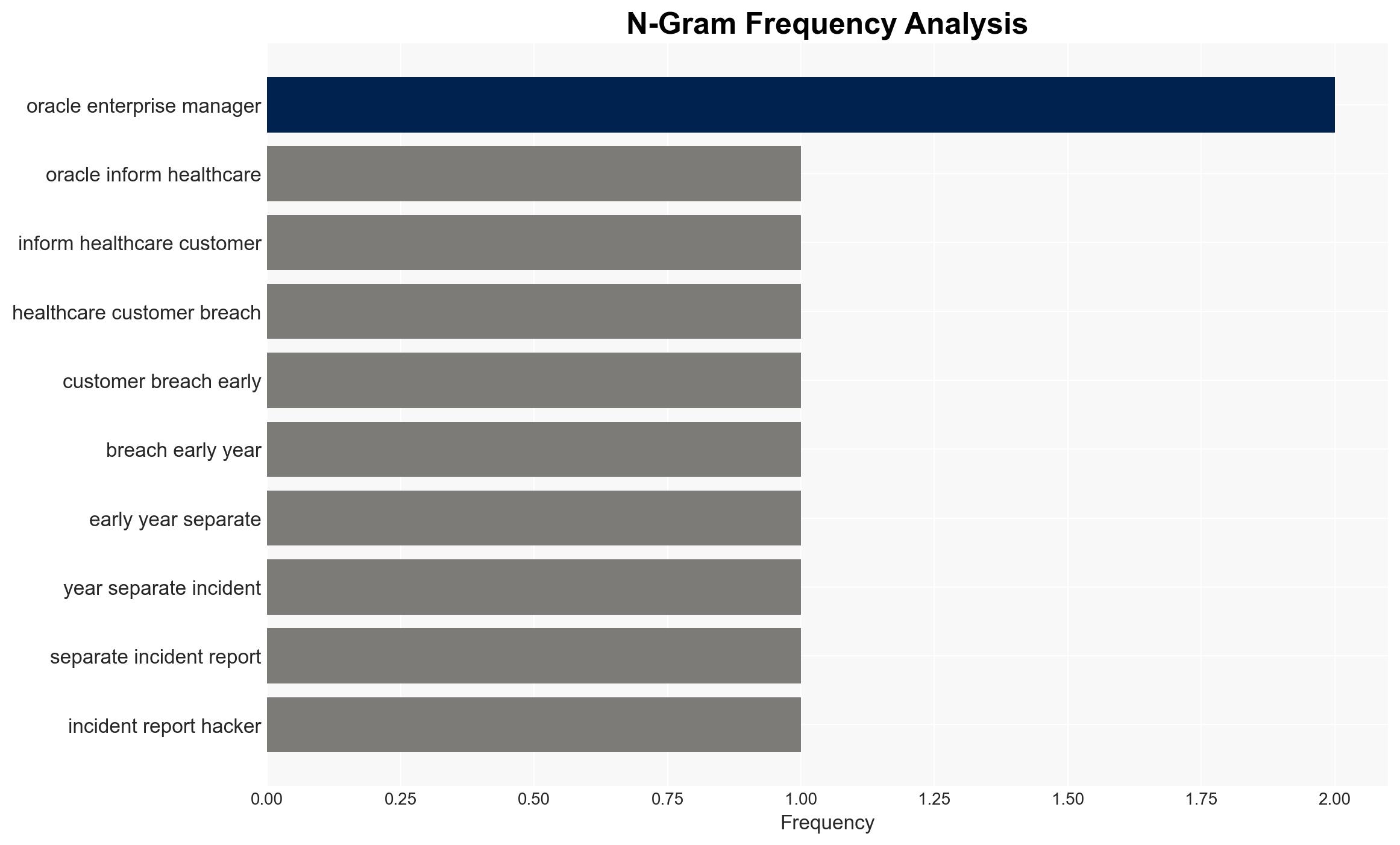Proactive Steps For Healthcare CIOs Amid Oracle Security Concerns – Forbes
Published on: 2025-04-01
Intelligence Report: Proactive Steps For Healthcare CIOs Amid Oracle Security Concerns – Forbes
1. BLUF (Bottom Line Up Front)
Recent security concerns involving Oracle have highlighted vulnerabilities in healthcare IT systems. Hackers accessed Oracle servers, compromising sensitive data, including cryptographic keys and passwords. This incident underscores the urgent need for healthcare CIOs to enhance cybersecurity measures, focusing on password management, key regeneration, and multi-factor authentication. Proactive steps are essential to mitigate risks and prevent future breaches.
2. Detailed Analysis
The following structured analytic techniques have been applied for this analysis:
General Analysis
The breach involved unauthorized access to Oracle servers, where hackers obtained sensitive data such as Java Key Store files and encrypted passwords. The compromised data could potentially allow unauthorized access to critical systems, posing significant risks to healthcare organizations. The incident highlights the importance of robust cybersecurity protocols, including regular password resets, key regeneration, and the implementation of multi-factor authentication.
3. Implications and Strategic Risks
The breach poses several strategic risks, including potential disruptions to healthcare services and the compromise of patient data. The incident could lead to regulatory scrutiny and financial penalties for affected organizations. Additionally, the breach may erode trust in healthcare IT systems, impacting the broader adoption of digital health solutions. National security concerns arise if sensitive healthcare data is exploited by malicious actors.
4. Recommendations and Outlook
Recommendations:
- Implement immediate password and key resets for all affected systems.
- Enhance cybersecurity training for employees to recognize phishing attempts and other threats.
- Adopt multi-factor authentication across all systems to strengthen access controls.
- Conduct regular security audits and patch management to address vulnerabilities promptly.
- Develop a comprehensive incident response plan to manage future breaches effectively.
Outlook:
In the best-case scenario, healthcare organizations will swiftly implement recommended security measures, minimizing the impact of the breach and restoring trust in their systems. In the worst-case scenario, failure to address vulnerabilities could lead to further breaches, regulatory penalties, and loss of patient trust. The most likely outcome involves a gradual improvement in cybersecurity practices, driven by increased awareness and regulatory pressure.
5. Key Individuals and Entities
The report mentions significant individuals and organizations involved in the incident, such as Oracle and healthcare CIOs. These entities play crucial roles in addressing the security challenges and implementing necessary measures to safeguard sensitive data.





